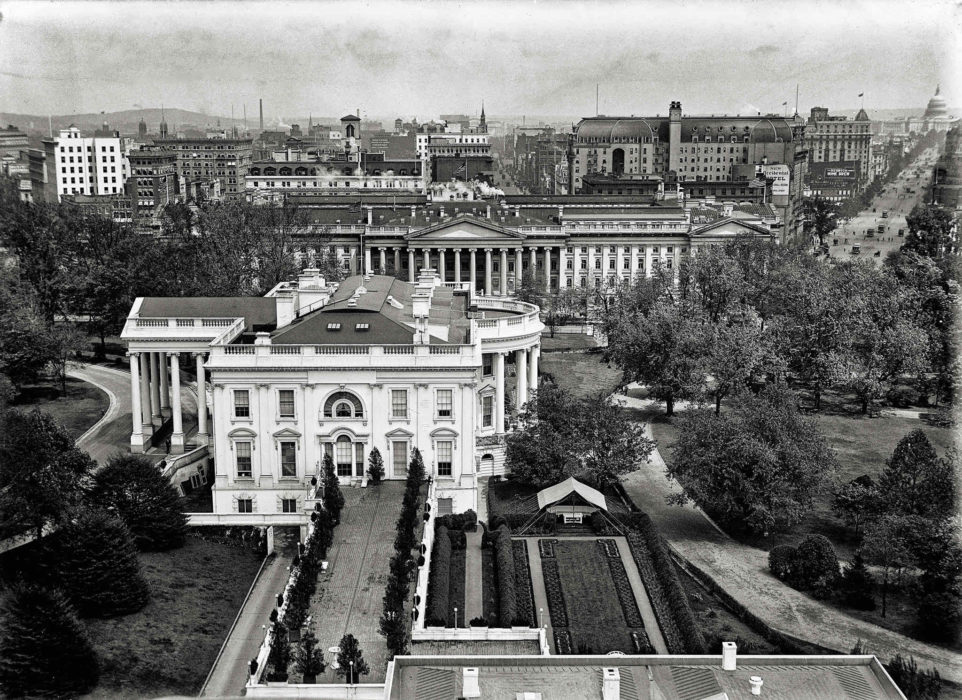ON THE EVENING OF November 8, 1912, ‘Abdu’l-Bahá addressed the Washington Hebrew Congregation, led by Rabbi Abram Simon, at the Eighth Street Temple in the nation’s capital. One month earlier, he had spoken to a similar Reform congregation at the Temple Emanu-El in San Francisco, asking them to consider that just as the Jewish prophets had reclaimed a lost people and turned them into a mighty society, so too had Jesus and Muhammad. His approach in Washington was similar, though this time around his argument was met with less enthusiasm.
‘Abdu’l-Bahá began by laying much of the blame for conflict in the world at the feet of those who professed a belief in God. “Most regrettable of all,” he said, “is the state of difference and divergence we have created between each other in the name of religion, imagining that a paramount duty in our religious belief is that of alienation and estrangement, that we should shun each other and consider each other contaminated with error and infidelity.”
Then, following precisely the same structure as his lengthy address at the Temple Emanu-El, ‘Abdu’l-Bahá outlined the transformation that Moses had achieved in the children of Israel. “They had been slaves,” he said, “[Moses] made them princes. They were ignorant; He made them learned . . . They became renowned throughout the ancient world until finally in the zenith and splendor of their new civilization the glory of the sovereignty of Solomon was attained.”
‘Abdu’l-Bahá spent a few minutes preparing his audience for the next phase of the argument. He asked them to be “just and fair in your judgment of the following statements.” He then proceeded to articulate the accomplishments of Jesus, going so far as to ask: “Were it not for Jesus Christ, would the Bible, the Torah have reached this land of America? Would the name of Moses be spread throughout the world?”

“This produced a stir among the people,” Agnes Parsons noted in her account of the evening. She states that Rabbi Simon made an effort through the translator, Dr. Fareed, to stop the address. Mahmúd-i-Zarqání, one of ‘Abdu’l-Bahá’s secretaries, wrote that the people seated near the pulpit made signs that ‘Abdu’l-Bahá’s time was up.
“A few words concerning the Qur’án and the Muslims,” was ‘Abdu’l-Bahá’s abrupt transition to the final step in his argument. He outlined the achievements of Muhammad, making sure to include Muhammad’s praise of Moses. While the congregation in San Francisco had thanked ‘Abdu’l-Bahá warmly for his thoughts, challenging as they may have been, some in Washington began to leave the synagogue. ‘Abdu’l-Bahá continued, undeterred. He posed the question: “Since the Prophets themselves, the Founders, have loved, praised and testified of each other, why should we disagree and be alienated?”
“We must be united,” he added. “We must love each other. We must ever praise each other.” The alternative, he said, was that “religious wars will have no end.”
Agnes Parsons telephoned Rabbi Simon the next morning and invited him to visit with ‘Abdu’l-Bahá. Later that evening, ‘Abdu’l-Bahá told a small gathering about the conversation that had transpired between the two men. He had told Rabbi Simon that Jews should be proud of Jesus, a “mighty personage” that they had, in fact, given to the world. “When you express your glory and honor in the recollection of Christ,” he told the Rabbi, “rest assured that the Christians will shake your hands in fellowship.”
Rabbi Simon eventually concurred. But he asked one thing of ‘Abdu’l-Bahá: “Cannot you tell the Christians to love us a little bit more?”






